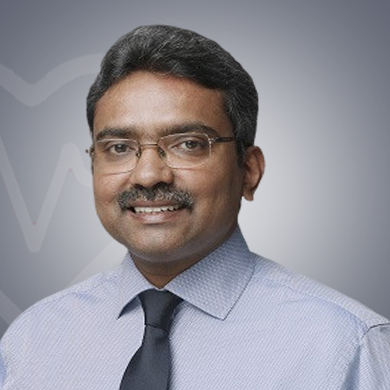
11 Years of experience
Speaks: English
Some of the conditions treated by opthalmologist Dr Joseph Mathew include:
The treatment for dry eye is decided after an opthalmologist performs tests and evaluates the severity of the disease. The treatment options may include proper dieting, medications, and surgery. The doctor might use certain antibiotics for bacterial conjunctivitis. Antibiotics might lessen the duration of the infection.
You must see an opthalmologist if you have any of the below-listed symptoms:
The above signs and symptoms suggest that you need to see an eye specialist. Having serious eye problems on time can help you restore your vision. Sometimes, non-vision eye problems may be treated to keep the eyes comfortable and the eyesight sharp. It is important to go for routine eye examinations to diagnose the condition.
Dr Joseph Mathew is available for consultation between 10 am and 5 pm. The average working hours of the doctor are 47 hours a week.
Dr Joseph Mathew is an experienced opthalmologist who performs a number of popular procedures mentioned below:
LASIK (laser-assisted in situ keratomileusis) is the most common procedure performed to treat myopia, hyperopia, and astigmatism. Like other types of eye surgery, LASIK reshapes the front surface of the eye to allow light entering into the eye to focus clearly on the retina without the use of glasses or contact lenses.

Share Your Experience about Dr. Joseph Mathew

An ophthalmologist helps improve patients’ vision by testing the eyes in order to diagnose and treat disorders. Some ophthalmologists specialize in eye surgery to correct and fix eye problems. An ophthalmologist can provide the same services as an optometrist, such as prescribing eyeglasses as well as contact lenses to treat vision problems. An ophthalmologist also diagnoses as well as treats eye conditions, does eye surgeries, and participates in scientific research on the causes and treatment for eye diseases and vision issues. Sometimes, ophthalmologists also detect health issues that are not related to the eyes but become clear in a routine eye exam. The ophthalmologist recommends that the person should consult their doctor.
An opthalmologist may suggest the below-listed tests for the diagnosis of eye conditions:
Eye exams are critical because severe eye diseases such as glaucoma, cataracts, macular degeneration, or diabetic retinopathy may have minimal symptoms until the condition has progressed. An eye exam involves a number of tests to check your vision and eye diseases. An opthalmologist will perform a series of tests to find out the eye problem and will recommend a treatment plan.
Some of the signs you need to visit an ophthalmologist include:
If you notice the above-listed signs and symptoms, you are suggested to see an opthalmologist for a proper diagnosis of the condition. The opthalmologist will evaluate the test reports and will plan the treatment that is best for you.